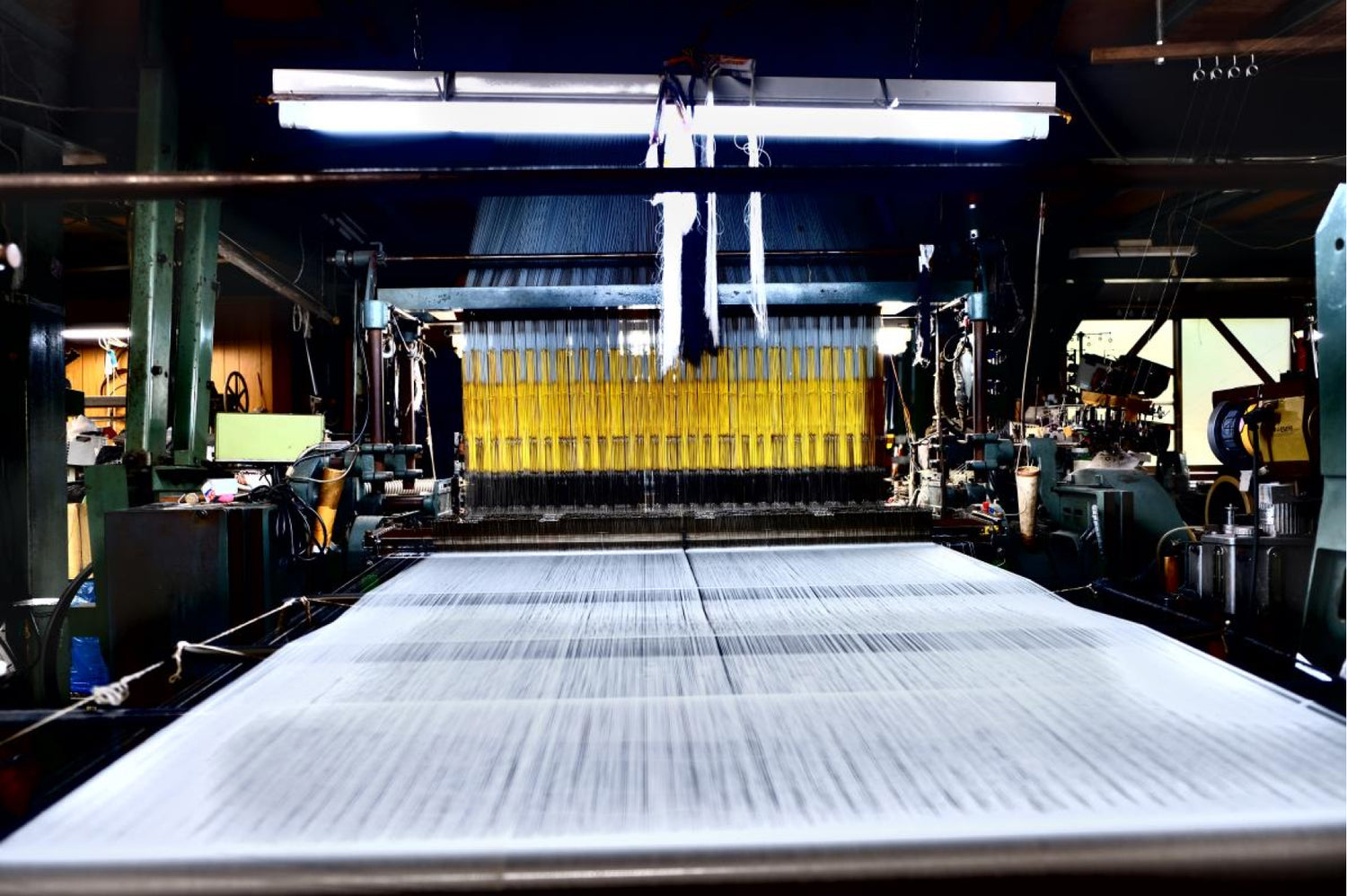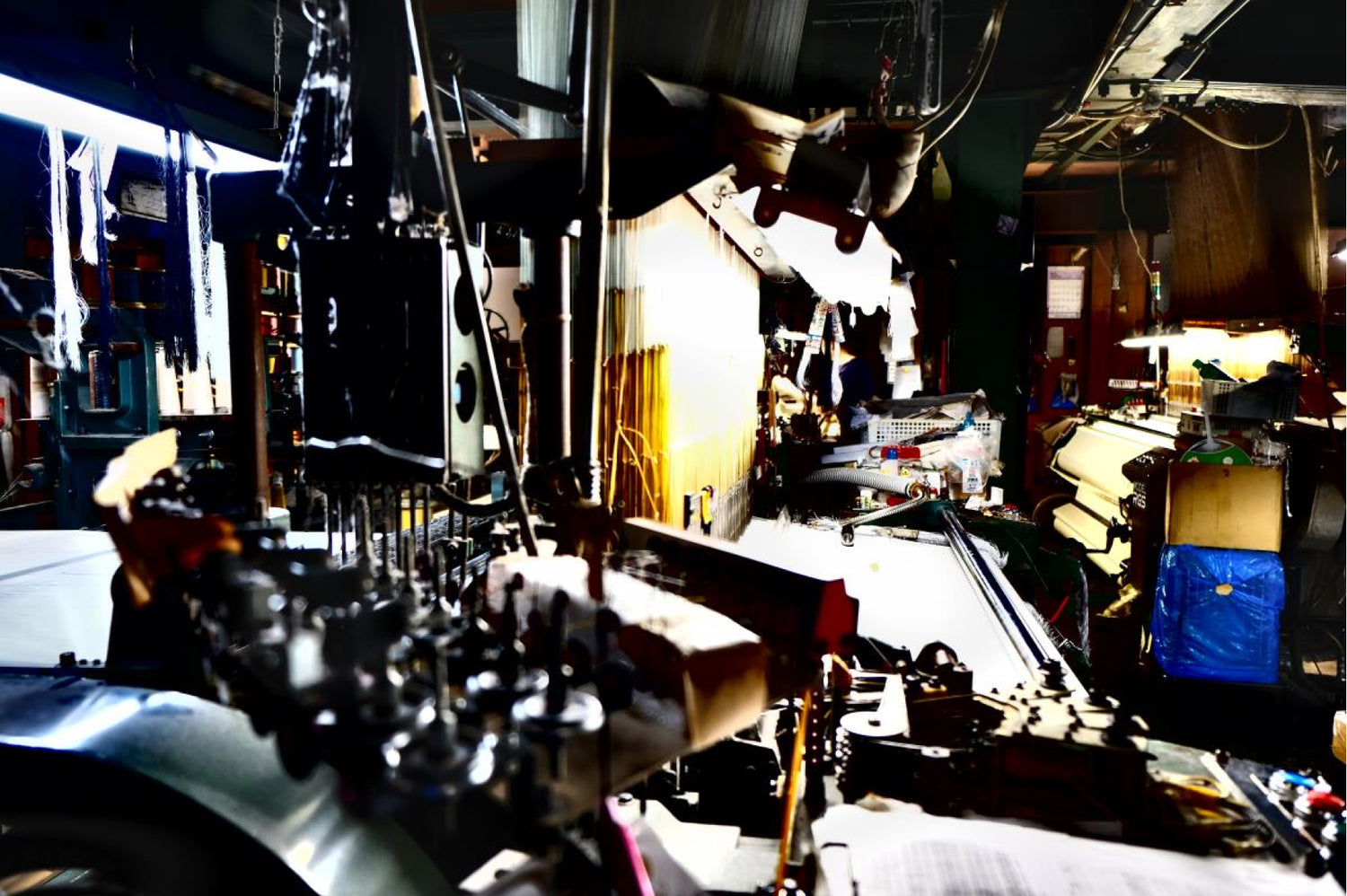SUSTAINABILITYSustainability


Our efforts to connect to the future
The sustainability that we do is to pass on the unbroken techniques of craftsmen to future generations. Japan's unique culture and technology are all wonderful things (persons) that are accepted in the world. However, it is also a fact that the technology will be buried if it is not disseminated in a form. Technology that is buried will gradually decline and become lost technology. Before that happens, we are creating a path to pass on our wonderful technology and culture.

Japanese textile01
Japan has many world-class textile industries.
Kimono fabric has developed along with the unique Japanese culture of kimono. It has a history of developing with its own characteristics, influenced by various regions and daimyo national policies.
We would like to leave the tradition to people by using the fabric that inherited the wonderful culture and making it into a work.
And by continuing this cycle, we hope that by energizing craftsmen and the textile industry, it will become a continuous tradition that will be passed down to future generations, that is, sustainability.
We would appreciate it if you could support sustainability activities with us through your work.

Efforts with Japanese craftsmen02
Why are Japanese products so popular all over the world, regardless of genre?
This is influenced by the temperament and ethnicity of the Japanese people, but I think the biggest reason why we are gaining support is our uncompromising and sincere work towards each and every job.
We value the continuous support of domestic craftsmen and the succession of techniques in domestic sewing.
High quality technology is maintained through continuous support and sustainable manufacturing. Working with Japanese sewing craftsmen is also an important sustainability activity for us.
And it is an important part of sustainability to have people use our products with our thoughts.

Initiatives with overseas craftsmen03
Due to the popularity of fast fashion all over the world, in recent years, it has been manufactured at low cost in developing countries and sold at low prices.
There are problems such as the fact that the producers are not paid the appropriate amount of money due to the excessive demand for cost reduction, and the environmental pollution caused by using a large amount of chemicals to increase productivity.
Due to this vicious circle, we are supporting the craftsmen who are in a difficult situation through trade with the aim of becoming economically independent.
Specifically, we carry out fair trade and make efforts not to lose traditional crafts, craftsmanship, culture, etc.
On the consumer side, through shopping, they can contribute to society in other countries' communities and protect their lifestyles, technology, culture and traditions.
We cherish the invisible connections between people and cultures through things, and carry out sustainability activities on both the manufacturing side and the consumer side.
Manufacturing losses and their impact
Today, the world is overflowing with clothing.
Due to the influence of fast fashion in recent years, there are many low-priced mass-produced clothes. However, do you know the disadvantages behind the advantages of low prices?
The problem of low cost is not only the wage problem of craftsmen. Currently, approximately 1 million tons of clothing (approximately 3.3 billion pieces) are discarded annually in Japan. Approximately 90% of them are not recycled and are disposed of in landfills or incinerated, generating a large amount of greenhouse gases and burdening the environment.
As an initiative aimed at eliminating this vicious cycle of accumulation, we do not dispose of any of our products. One of the reasons for doing a small number of limited production is to reduce manufacturing loss and consider the environment. In order to produce wonderful things, it is necessary to create a wonderful environment, and we are trying to maintain the environment as much as possible by eliminating production loss and disposal.
Commitment to sustainability
-

local production for local consumption
We support the maintenance and inheritance of culture and technology by spreading various Japanese fabrics and techniques through local production for local consumption.
-

Reduce product loss
Aiming for better manufacturing, we support the prevention of global environmental pollution by manufacturing in consideration of the global environment and reducing consumption loss.
-

Overseas call
By disseminating excellent technology overseas, we are supporting the creation of an environment that makes it easier to sustain and pass it on.
-

Evolution to a new path
In order to continuously pass on culture and technology, we support designers through their designs so that they can evolve with new ideas.
-

fair trade
Through fair trade, we support craftsmen to become economically independent and create an environment in which they can establish and maintain a better manufacturing environment.
-

continuous manufacturing
By continuing to manufacture, we support the maintenance of technology and the continuous development of the manufacturing industry.





